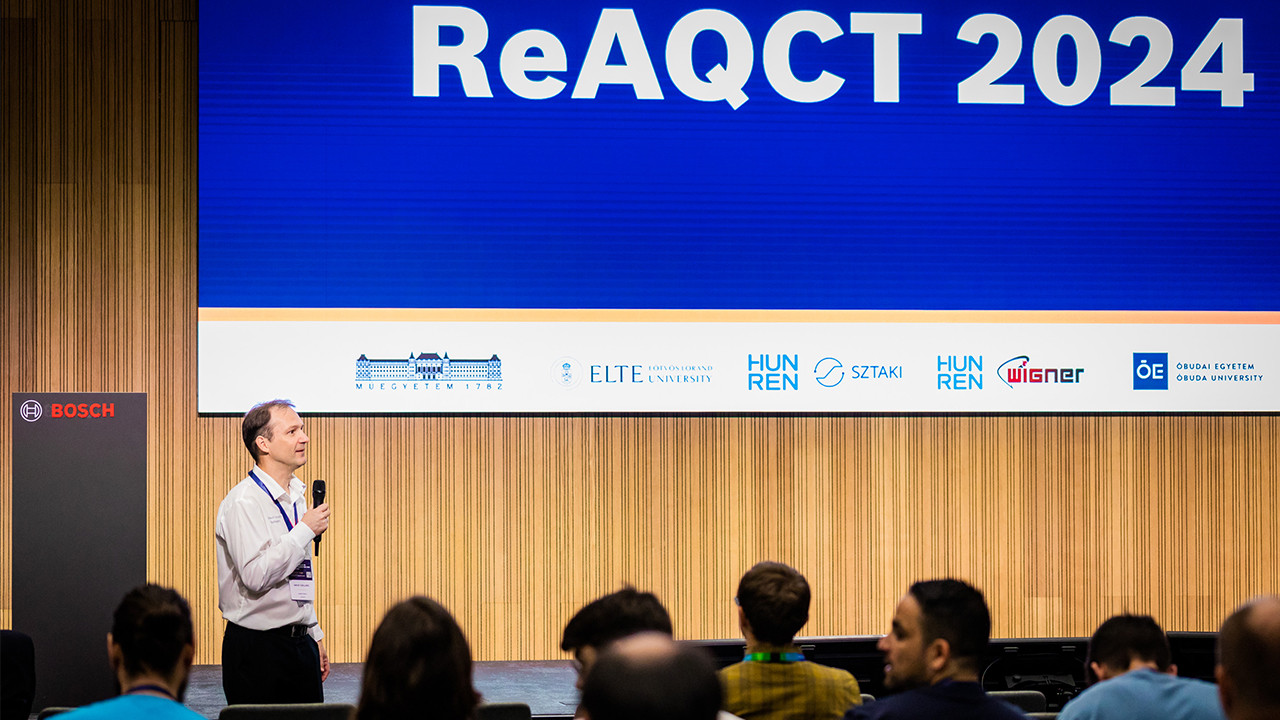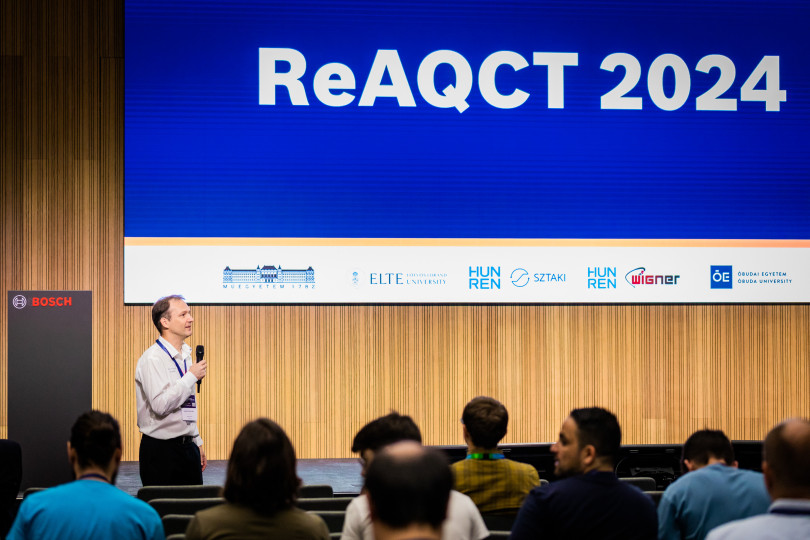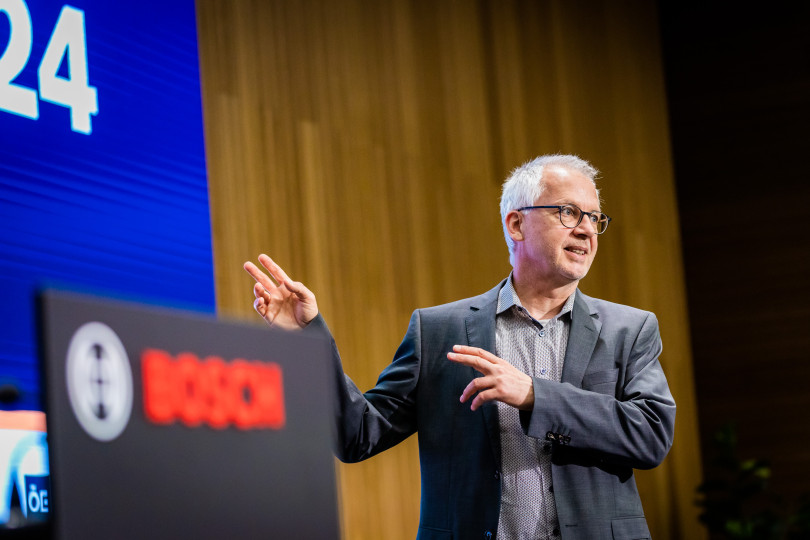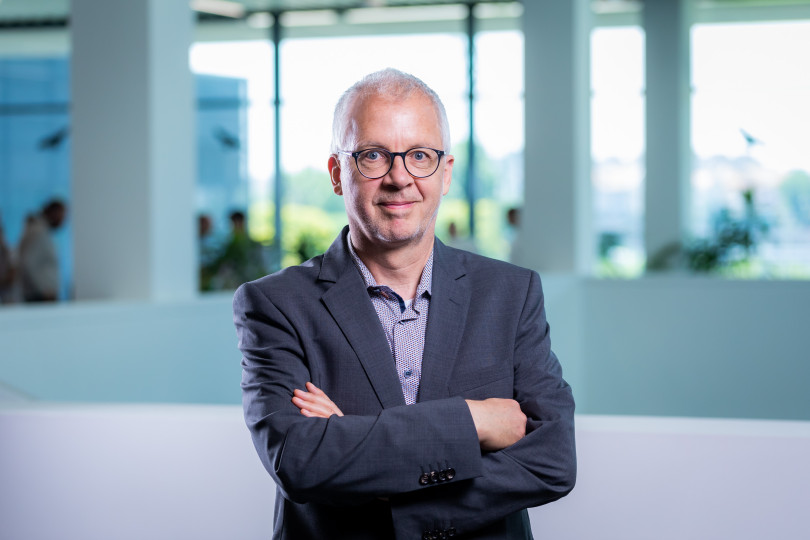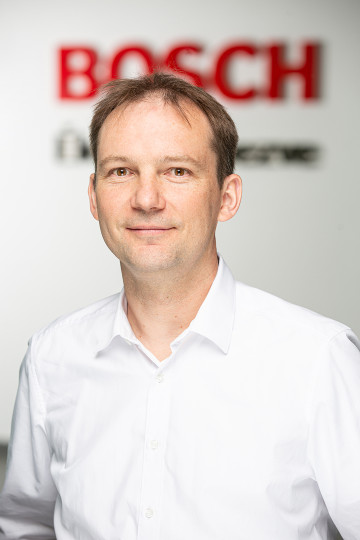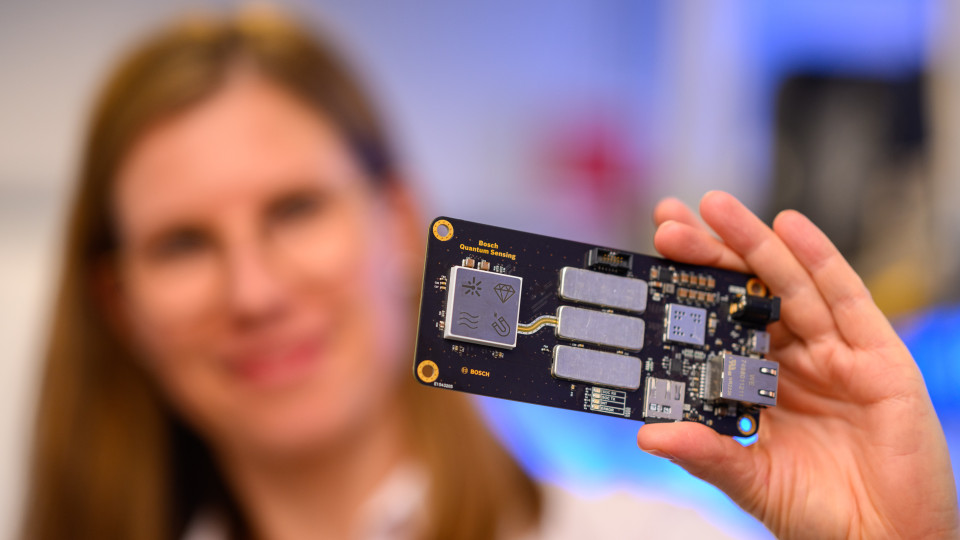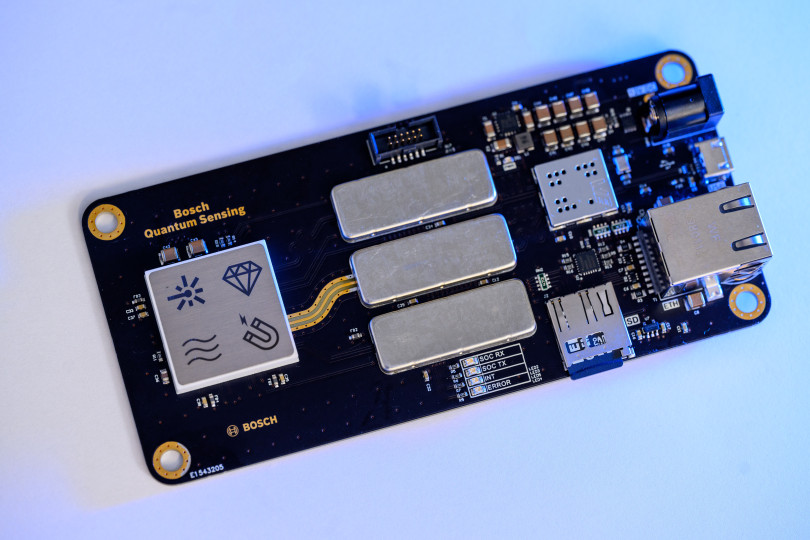Quantum technology can bring breakthroughs in automotive and medical technology
Quantum phenomena are mainly manifested in the behavior of the smallest building blocks of matter. These tiny particles behave very differently from the way we are used to in everyday life. Building on these quantum phenomena, quantum technology could revolutionize the way we sense our environment and process information. Bosch is developing its first products built on quantum technology for medical and mobility applications.
ReAQCT: the most comprehensive Hungarian quantum conference on the Bosch campus in Budapest
The Bosch Group has been researching the potential of quantum technology for 10 years. In cooperation with its professional partners, Robert Bosch Kft. organized the first scientific conference “Recent Advances in Quantum Computing and Technology” (ReAQCT) on 19-20 June, 2024 at the Bosch Budapest Innovation Campus. The conference brought together leading scientists in quantum research and applications, as well as industry experts at the forefront of this technology, to present their latest findings. The ReAQCT 2024 conference focused on quantum algorithms, quantum software, quantum error correction and quantum sensors, but also on the relationship between artificial intelligence and quantum computing. In addition to promoting scientific dialogue, the event aimed to raise awareness of the importance of quantum technology and to contribute to its development in Hungary. ReAQCT is the first in a new series of conferences on quantum technology.
Bosch is developing products with quantum technology inside
Bosch is one of the world leading sensor companies, it is therefore crucial to research and develop quantum sensors that are more sensitive than current technologies and can measure the magnetic field, acceleration and other important physical quantities very accurately. The Bosch Quantum Sensing start-up is currently working with pilot customers on specific applications of quantum sensors in the medical and mobility industries, which could lead to revolutionary advances in areas such as more precise medical diagnostics, navigation or batteries. Bosch’s quantum sensors could be used in the future for more precise and faster measurements than current electrocardiography (ECG), for example, or to determine the exact charge level of battery. (More information: https://www.boschmediaservice.hu/en/press_release/bosch_quantumsensor_2023-383.html)
In addition to quantum sensors, Bosch also sees significant potential in quantum computers, which the company believes will have applications and breakthroughs in a wide range of technological areas. “Quantum computers also represent a huge step forward in materials science. They help us to develop special materials that would never be possible with conventional computers,” said Dr. Thomas Strohm, Chief Expert for Quantum Technologies at Bosch Research, at the ReAQCT conference. He added that Bosch is currently working closely with IBM on the simulation of materials using quantum computers.
Industry and academic sector in Hungary working together on quantum developments
“Only by bringing together industry and academic sector can we make significant progress in quantum technology research and development. Therefore, we are pleased to host and organize the conference at the Bosch Budapest Innovation Campus and participate as speakers,” said Dr. Ákos Csilling, Bosch scientist and chairman of the ReAQCT conference organizing committee.
At the ReAQCT conference, leading researchers from all over the world presented their latest technical and scientific results in the field of quantum technology at the invitation of experts from leading Hungarian higher education institutions and academic sector: Eötvös Loránd University, Budapest University of Technology and Economics, Óbuda University, HUN-REN Wigner Research Centre for Physics Physics (Wigner FK) and HUN-REN Institute for Computer Science and Control (SZTAKI).
The Quantum Information National Laboratory in Hungary, an institution dedicated to the development of high-quality research in quantum technologies for quantum computing, took a key part in the organization. The conference was also attended by Wigner FK, the leader of the consortium of the laboratory. Their experts are carrying out internationally recognized theoretical and experimental research in the fields of quantum optics, quantum computing and quantum sensing, as well as quantum communications, and are involved in several major EU grants.
HUN-REN SZTAKI focuses mainly on quantum computing in quantum technologies, with a particular focus on potential practical applications, especially in the fields of manufacturing automation and autonomous vehicles. As head of the Artificial Intelligence National Laboratory (MILAB) and the Autonomous Systems National Laboratory (ARNL), the institute is also exploring the potential of quantum computing in several other areas.
Researchers at ELTE’s Faculty of Informatics are not only investigating the potential of quantum computing for applications such as artificial intelligence and machine learning, but also the security risks that the advent of quantum computing poses and how to address them. The faculty is also involved in building the emerging European quantum communication infrastructure (QCIHungary). They put a particular emphasis on software engineering research in support of quantum computing programming, creating new programming languages and environments.
The Budapest University of Technology and Economics (BME) plays a prominent role in quantum technology education and research in Hungary. The courses offered at the university provide high-quality courses in quantum technology. These courses provide students not only with theoretical but also with practical knowledge, helping the next generation of Hungarian professionals to participate in the global quantum revolution.
The Óbuda University (OE) also places a strong emphasis on incorporating the latest technologies, including quantum computing theory and practice, into engineering education. The university believes that beyond research, this dynamically developing field can provide practical solutions for industry and the economy in the near future.
Zita Hella Varga
Phone: +36 70 667-6374
Bosch has been present in Hungary since 1898 with its products. After its re-establishment as a regional trading company in 1991, Bosch has grown into one of Hungary’s largest foreign industrial employers with currently eight subsidiaries. In fiscal 2023 it had total net sales of 2.207 billion forints and consolidated sales to third parties on the Hungarian market of 343 billion forints. The Bosch Group in Hungary employs more than 18,300 associates (as of December 31, 2023). In addition to its manufacturing, commercial and development business, Bosch has a network of sales and service operations that covers the entire country.
The Bosch Group is a leading global supplier of technology and services. It employs roughly 429,000 associates worldwide (as of December 31, 2023). The company generated sales of 91.6 billion euros in 2023. Its operations are divided into four business sectors: Mobility, Industrial Technology, Consumer Goods, and Energy and Building Technology. With its business activities, the company aims to use technology to help shape universal trends such as automation, electrification, digitalization, connectivity, and an orientation to sustainability. In this context, Bosch’s broad diversification across regions and industries strengthens its innovativeness and robustness. Bosch uses its proven expertise in sensor technology, software, and services to offer customers cross-domain solutions from a single source. It also applies its expertise in connectivity and artificial intelligence in order to develop and manufacture user-friendly, sustainable products. With technology that is “Invented for life,” Bosch wants to help improve quality of life and conserve natural resources. The Bosch Group comprises Robert Bosch GmbH and its roughly 470 subsidiary and regional companies in over 60 countries. Including sales and service partners, Bosch’s global manufacturing, engineering, and sales network covers nearly every country in the world. Bosch’s innovative strength is key to the company’s further development. At 136 locations across the globe, Bosch employs some 90,000 associates in research and development, of which nearly 48,000 are software engineers.
Additional information is available online at www.bosch.hu, iot.boschblog.hu, www.bosch.com, www.iot.bosch.com, www.bosch-press.com, www.twitter.com/BoschPresse

